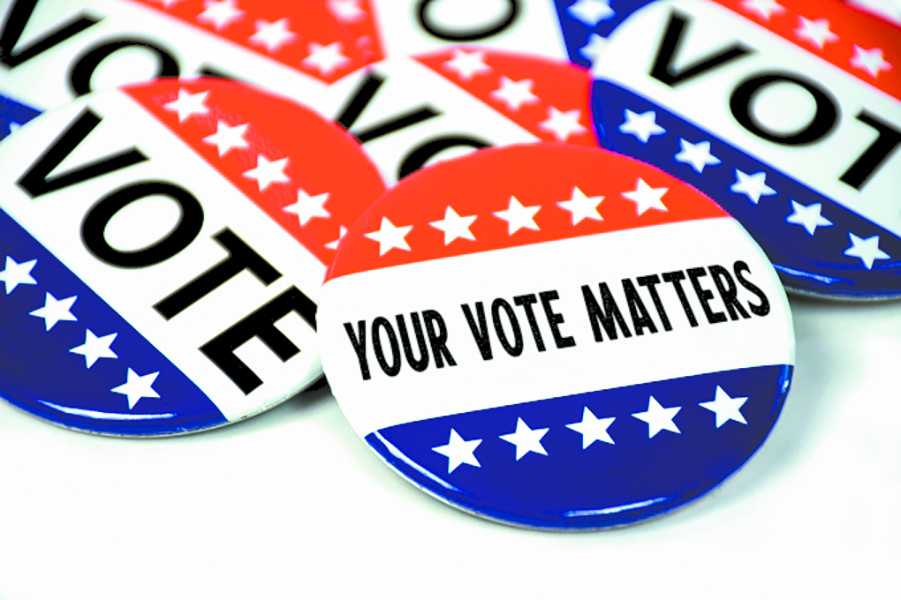By Leonard E. Colvin
Chief Reporter
New Journal and Guide
Virginia Democrats are awaiting a response from Attorney General Merrick Garland on whether he will probe the recent “purge” of the voter roll by the Youngkin administration. They believe the Governor violated the Voting Rights Act when it wiped off at least 270 fully qualified Virginia voters from the state’s rolls.
In a letter to the media dated October 6, two Democratic Senators and six Democrats in the House of Representatives pressed Garland to undertake an investigation.
The letter was signed by U.S. Senators Tim Kaine and Mark Warner, and along with U.S. Representatives Bobby Scott, Gerald Connolly, Donald S. Beyer Jr., Abigail D. Spanberger, Jennifer Wexton, and Jennifer McClellan.
The letter reinforced a call by Congressman Scott for the DOJ inquiry he made during a press conference shortly before the letter was sent.
“This widespread error creates an enormous barrier to the democratic process for these affected Virginians while early voting has already begun for this November’s election,” the letter says.
Elections officials under Virginia’s Republican Governor Glenn Youngkin acknowledged the removals on October 5 but said they stemmed from honest mistakes that they will correct before the November 7 General Assembly elections, which will decide the fate of the governor’s legislative legacy and his viability as a potential 11th-hour 2024 presidential candidate.
“When the governor’s office became aware of the inconsistencies regarding the misclassification of probation violations as felonies, as had been the process in previous administrations, he asked for … [State Police] to correct the process and ordered a review,” Youngkin spokeswoman Macaulay Porter said in an email to the media.
The Justice Department has not responded to a request for comment as of the GUIDE’s deadline.
The issue arose weeks after early voting in the state began on Sept. 22. Youngkin’s elections officials conceded that they had removed an unknown number of voters who had been convicted of felonies, had their voting rights restored, and then went on to violate the terms of their probation. The state’s computer software counted the probation violations as new felonies that disqualified them from voting, administration officials have said.
The administration announced in December that it scrubbed 10,588 voters from the rolls as it sought to root out anyone not entitled to cast a ballot. Elections officials acknowledged that some of them should not have been removed, but they were unable to determine how many immediately.
As it turned out, 270 of the removals were made in error, officials said.
The lawmakers’ letter calls news reports about the problem “alarming” given the “consequential election already underway in Virginia” and previous issues with the state’s voter registration systems under Youngkin – including backlogs that delayed the processing of about 256,000 “motor voter” registration applications in the run-up to last year’s midterm congressional elections.
Youngkin ran for Governor in 2021 vowing to bring “election integrity” and business-world efficiency to state government.
In their letter to Garland, the Democrats said “potentially thousands of eligible Virginia voters” were removed.
Virginia is one of a few states that limit voting access after a felony conviction. The Commonwealth permanently disenfranchises those guilty of violent or nonviolent felonies unless the governor restores their civil rights.
Last July State NAACP leaders noted “Against the backdrop of the Commonwealth’s deplorable history of state officials using the power of their offices to prevent Black Virginians from voting, the Virginia NAACP is concerned that the Governor’s new process restores voting rights to some and not others without justification or explanation,” said Virginia NAACP President Robert N. Barnette, Jr.
In the 1980s, then Democratic Governor Charles Robb initiated a procedure to simplify the process for restoring voting rights, and all subsequent governors, both Democratic and Republican, expanded on that initiative, until the Youngkin Administration.
Like this:
Like Loading...
















